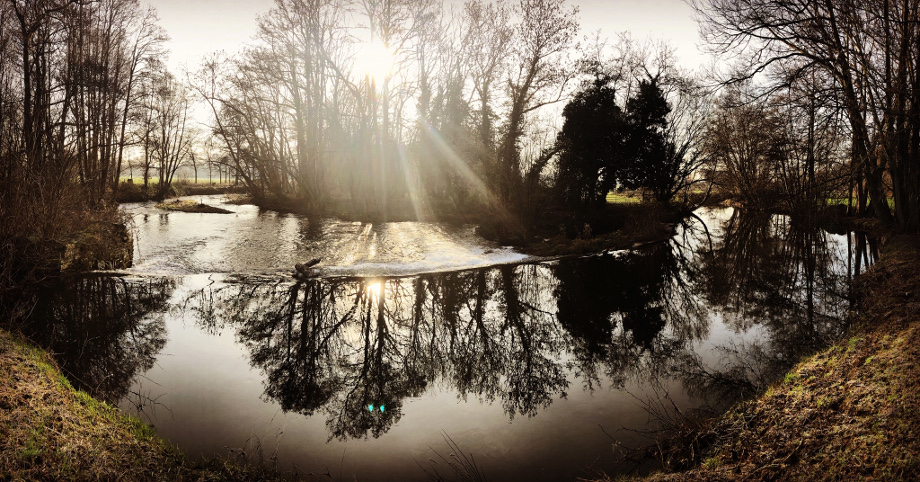Coarse Fishing Report By Adam Fisher
June 2019
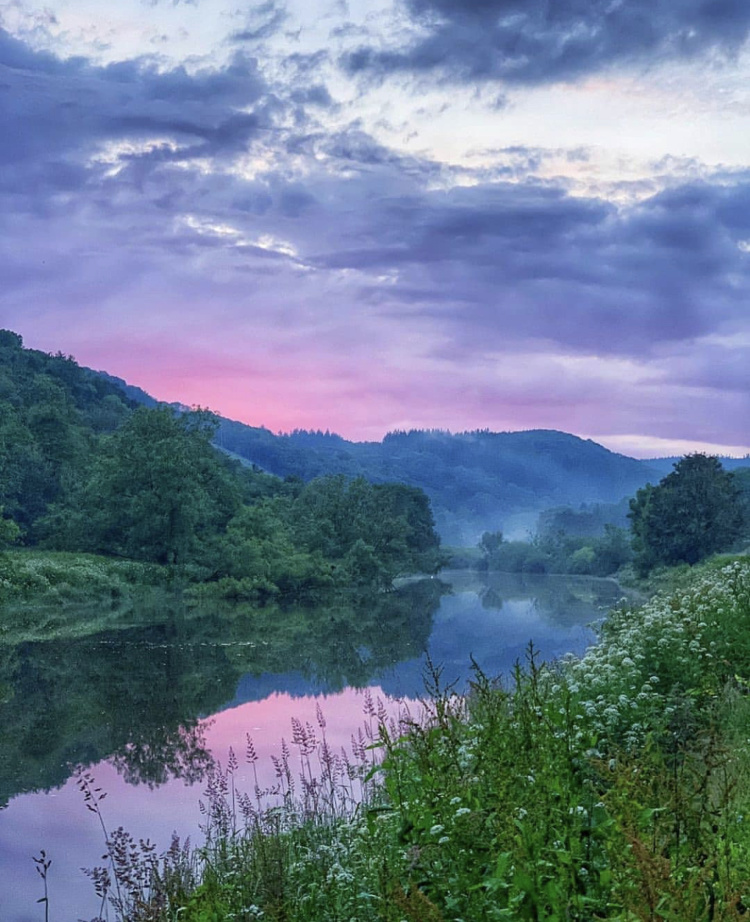
Looking back at my previous June reports I have noticed I say pretty much the same thing at the start of every season – this is that normally fishing at the start is somewhat slow. The barbel and chub can be still be spawn bound, or even a little washed out post-spawning. In recent years there’s nearly always an algal bloom and really things just don’t seem to have settled down yet. Despite this it’s always great to be back by running water and the closed season seems but a mere blip.
This year the river was high on June 16th, nearly over the banks in fact, which is actually pretty huge for summer. If we had had the same amount of water in winter it would have been a relatively major flood event. Due to the vegetation sucking much of the rain water up as it fell, along with warm temps evaporating it too, the river didn’t quite overlap bank high.
A summer flood is usually silt laden and with coloured and relatively mild water, it therefore usually means good fishing. This was indeed the outcome this year and just about everywhere experienced solid sport for at least the first week.
There’s always catches of chub that go with the barbel, with the numbers of barbel nearly always greater than the “block head.” However, this year there’s definitely been more chub than barbel caught. It’s not a case of less barbel caught overall, more an astonishing number of chub instead – 29 to one angler at Lower Canon Bridge, over 50 to an angler at the Creel, 30 odd at Fownhope, and even 20 odd reported down towards Monmouth.
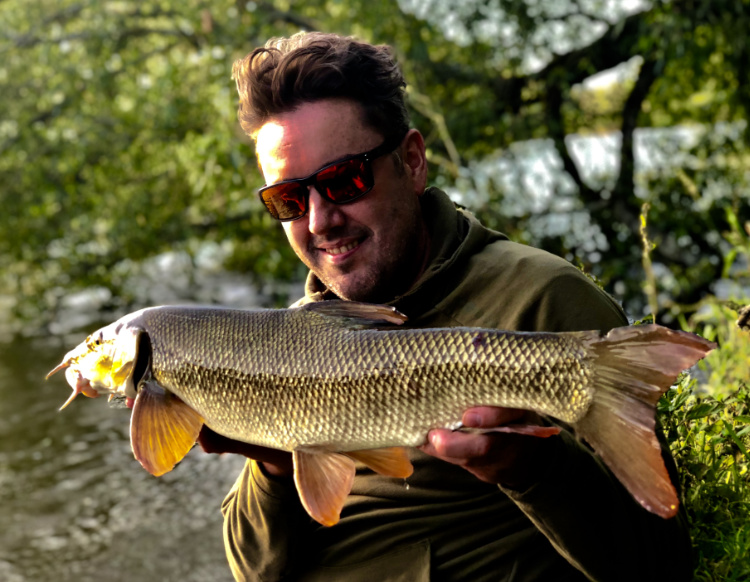
Fish were generally feeding right through the day from the start, with the sport actually slowing towards evening. By the end of the month the sport was slow all day and only in the evening were bites coming. The reasons again were unknown, but interesting observations overall I think. The going bait was most definitely meat. Had the river been lower and clearer then maybe other, smaller baits would have been more productive but meat, of course, is a good bait all-year round, but especially in a flood. As the month moved on hemp came into its own on the stretches I guided on, with a steady trickle throughout the day resulting in a steady trickle of fish with it. The very few that were not catching were as pleasantly philosophical as ever – “that’s fishing I suppose”, and even after a blank many thanking WUF and just being grateful to have access to such glorious British countryside.
By the longest day of the year everyone was catching up and down the river, and by the end of the month there were some pretty large barbel reported too, with numerous doubles to just over 12lbs.
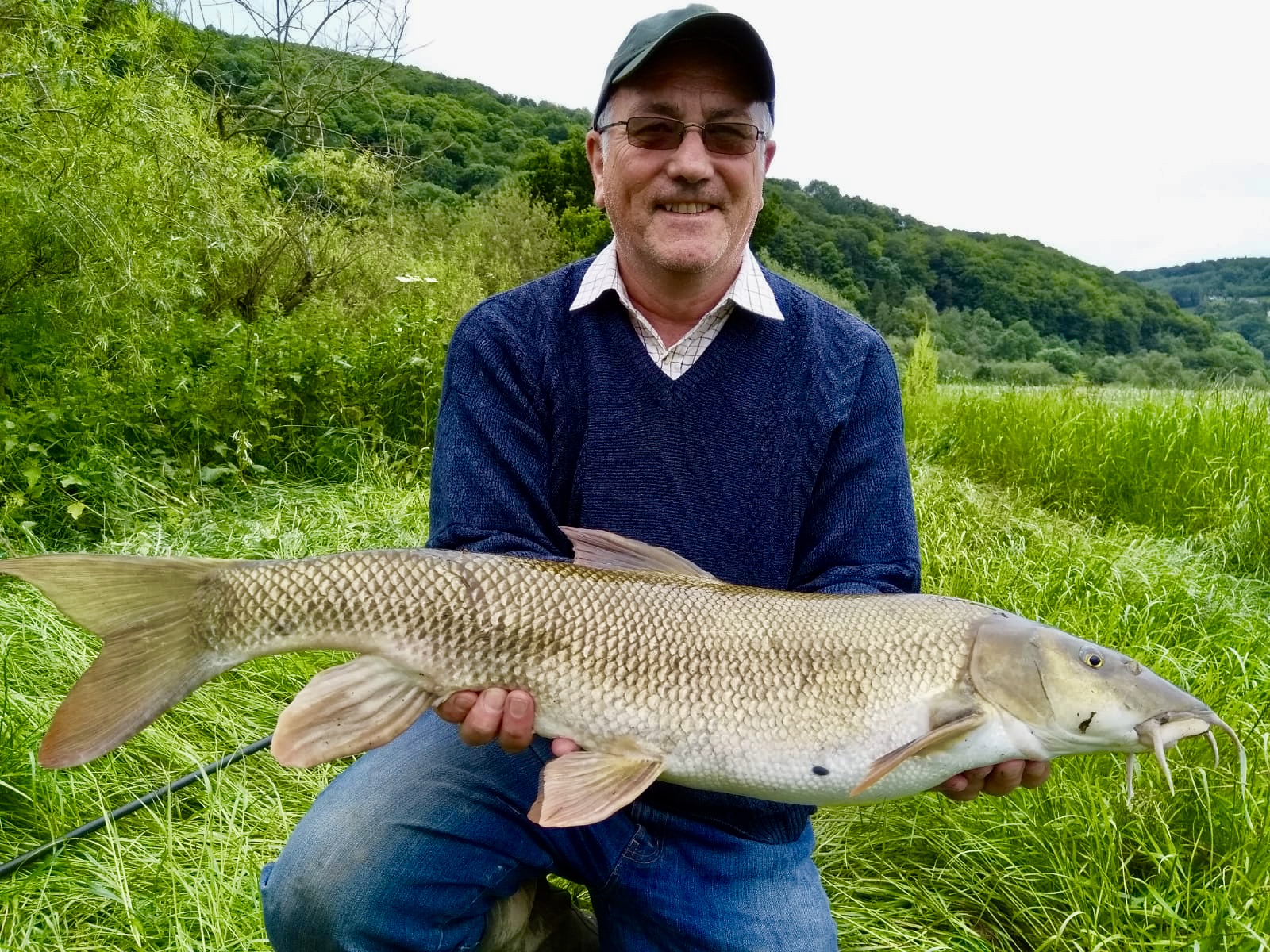
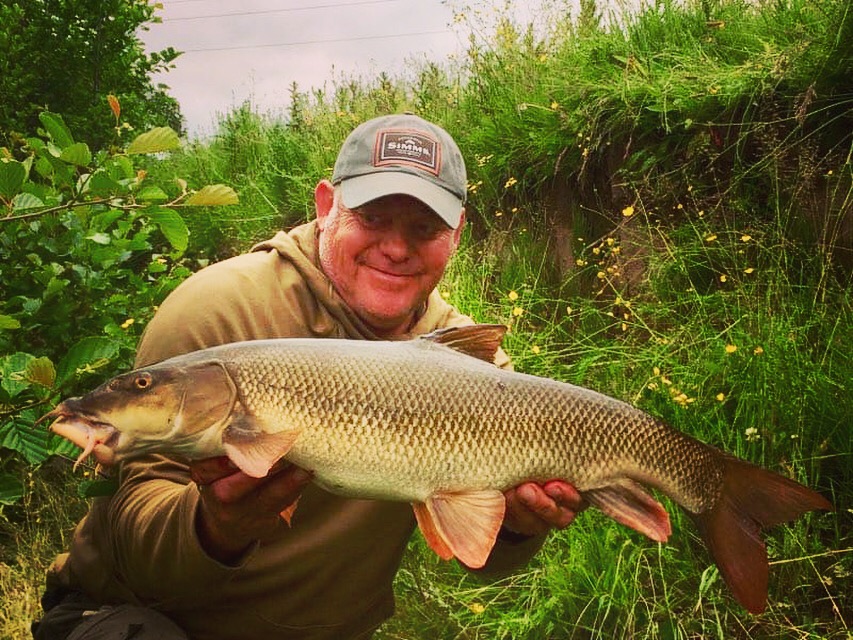
The shad all came at once too, right around longest day. Many were caught with many captors asking us to identify their capture. These are a rare fish still, and targeting them deliberately is of course prohibited under EA byelaws.
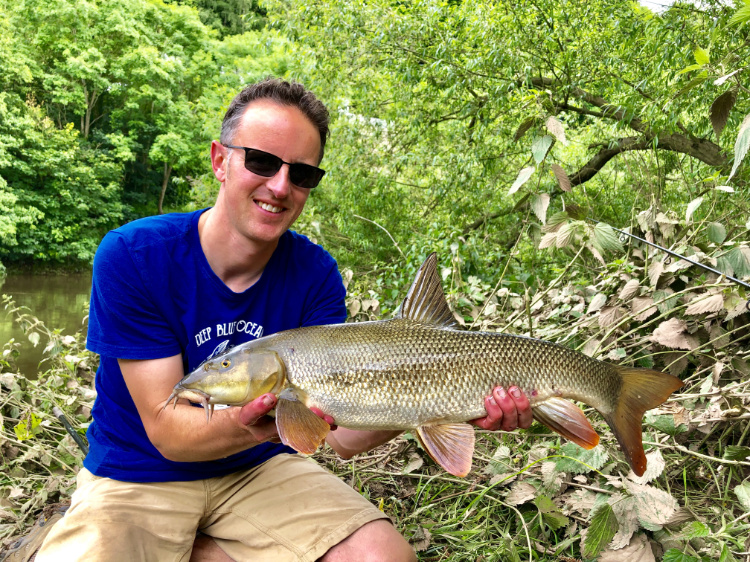
After the river finally dropped the fishing definitely slowed for about 48 hours – now there was talk of reservoir release as there was a rise in levels of a couple inches that was not caused by any rain. Whatever it was the river was colder than it had been, combined with chilly nights and the fishing was definitely “off”. We then experienced another small influx of rain, temps rose, and the fishing went nuts again. This said every day was different with the fishing varying from beat to beat.
One of the other things an early flood brings is reports of lack of high water swims. There were the usual complaints of work needed on fisheries, but more often than not these followed anglers on the previous days saying access was great. You can guess which report came from those who actually caught any fish…
Either way, the comments up and down the river were of praise for some of the work that WUF had done in the close season to improve access – with anglers reaping the rewards from the likes of Marsh Court – a previously tricky fishery to get sufficient clearance done.
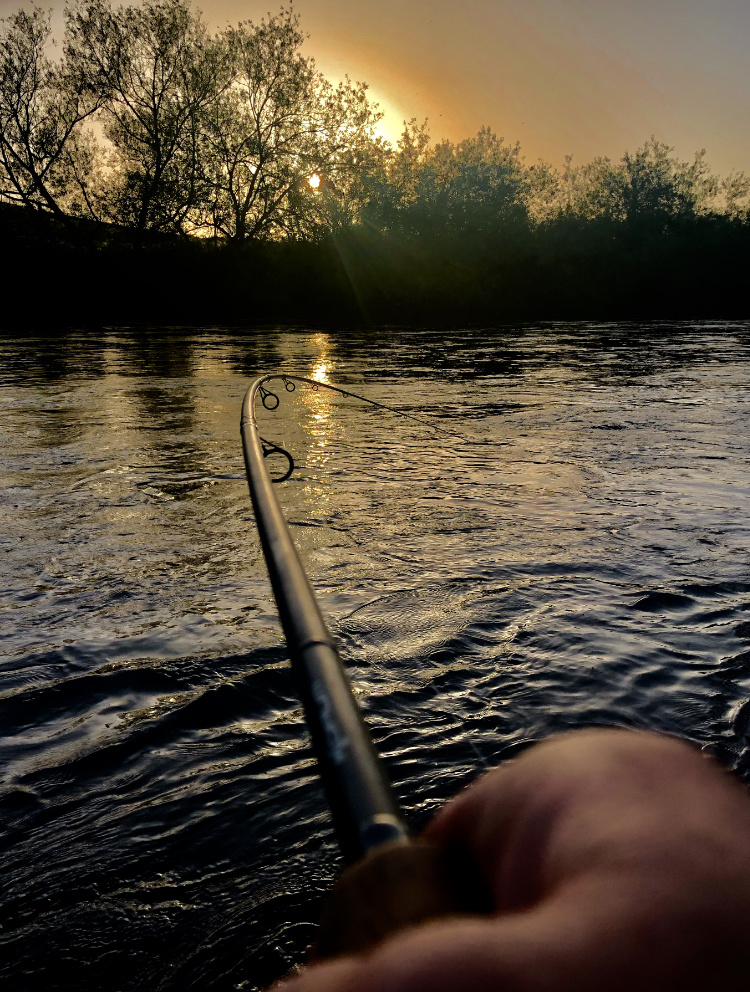
Come the opening day there were still fish spawning in places, which is about as late as I’ve know – even after a cold spring. The chub in fact were reported as spawning still into July (as I write this report). A lot more eels were being reported this year too – this is good of course as their numbers have been in decline. Catches became more prevalent at the turn of the month, just as a big algal bloom hit – this coincided with the hottest day of the year, where I was sweltering at Redmire. On my return to the river I was interested to hear how most coarse fish just weren’t feeding, and if they were it was very late in the day, just on dark. Was the increase in eel catches because nothing else is feeding and they were getting chance to get in and mop up what’s left? Either way it was a case of anglers catching not very much but eels.
I’d like to report that so far canoe traffic is largely more courteous than it has been in previous years, but we should reserve judgement until the summer holidays. Overall the numbers of boats on the river is quite astonishing and you wonder what number Natural England consider to be a threat to SAC species such as otters.
If you haven’t seen the new passport yet you can do so here – there’s some really interesting reading, including from yours truly about coarse anglers not repeating the mistakes of the past.
Please don’t forget you can post photos to your catch returns now – there’s some really cool ones already but please keep them coming.
Until next month, I wish you enjoyable fishing.
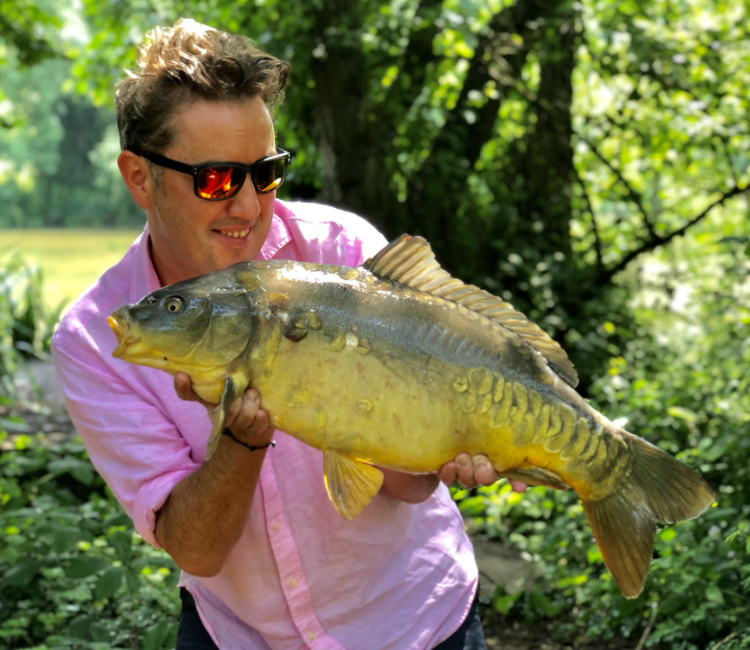
April 2019
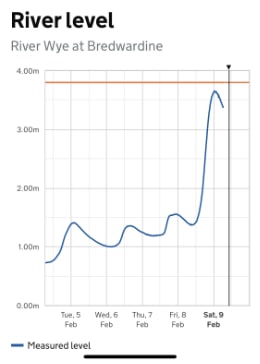
Even when you’re not fishing and thinking about how long the closed season is, it’s amazing how quickly the new season arrives. Here we are half way through, and it’s still chilly at night and during the days – we’re not missing much. I am concerned about another cold spring though. Last time we had one the barbel were in poor shape come June 16th, in the fast water, skinny and pretty tired out. Like all of us, they need a break in my opinion, as does everything.
Looking back we’ve had some nuts weather the last few years – and the last couple of months have been no exception. The beginning of February saw frosts, snow, hail, ice – and then towards the end of the month we had the hottest February day on record. The river levels were largely up and down and a flood beckoned and as you can see form the hydrograph, that’s exactly what happened...
The cold weather of course meant we fished for the usual winter species in February and March – pike and grayling. Then, on the back of that we had a load of snow melt and more cold water in the river. This is usually the kiss of death but plenty of barbel were being caught, which astounded me given the conditions. The chub fishing was excellent too and the Spring Festival on the Wye at Hereford saw some simply awesome captures (see film of the event here). The river was declared as being the best 50+ fish match venue in the country – a river in very healthy shape then...
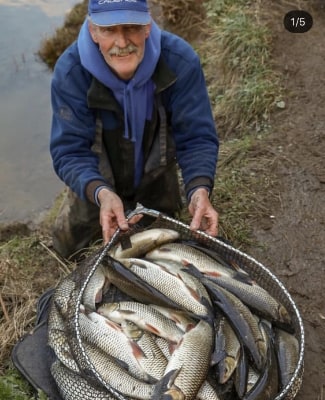
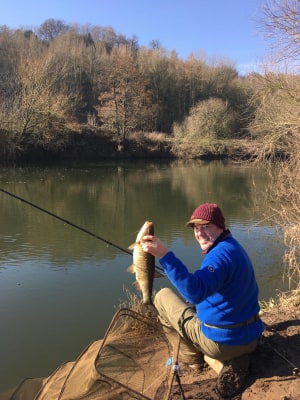
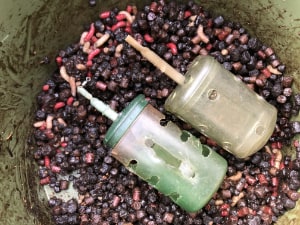

The grayling catches were pretty remarkable too. Even downstream as far as Sugwas Court there were catches of 10+ to coarse anglers. There was a one- week window where grayling really was the fish of the moment – Llanstephan. Llangoed and Whitney all producing great sport on the float.
26th February saw temperatures over 20C in Wales and I shared a magical day on the bank with Nigel Botherway. We fished for pike in the morning, trotted for chub as the mist burnt off, and after lunch were sat in t-shirts (and lots of suncream) catching barbel on maggot feeder – a really great day to remember. My number one bait for barbel in winter and spring is maggot, perhaps with a few micro pellets just to keep it interesting. I think the beauty of maggots is you catch all other species too, so it’s a great way to test out a stretch to see what it holds.
The salmon and trout anglers managed to fish opening day (3rd March) but a flood followed on the 4th, and stayed with us right to the end of the closed coarse season. There were some nice barbel caught, several over double figures, but that pretty much was it. I was more interested in the rugby thankfully and although I was born in England (being born in Africa wouldn’t make me African), the majority of my family are Welsh, including my mother who was born and raised in the valleys. Her grandfather (my great grandfather) was captain of Wales in the ‘20s, Tom Parker, and when it comes to egg chasing I’m afraid I’m a dragon through and through – what a six nations it was eh?
As I write now the tench fishing is still a bit slow as it’s still so chilly overnight. The carp fishing similar. I’ll be off trout fishing for a couple of weeks, then back onto the tench and am really looking forward to the rivers opening again. There’s nothing new to report in terms of fisheries as yet but my June report will update you. If you’re out and about I hope you enjoy yourselves, and if you need any advice or help booking any fishing please visit us or the Foundation, online or in person.
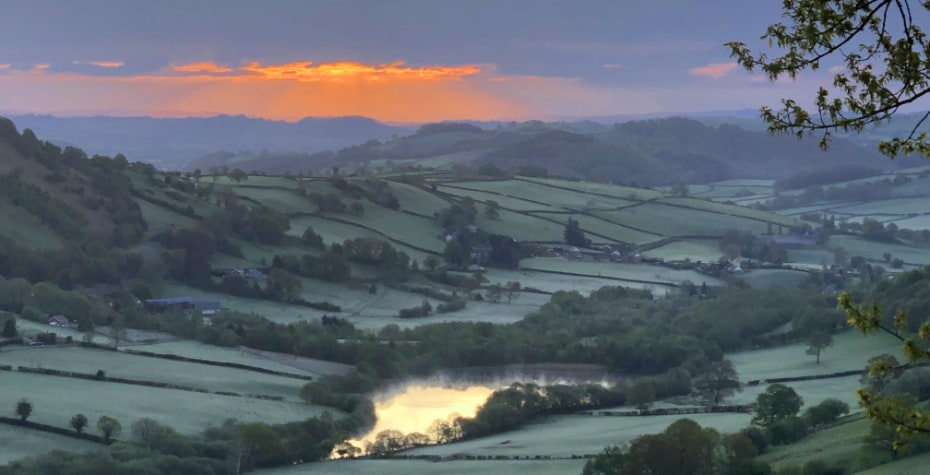
January 2019
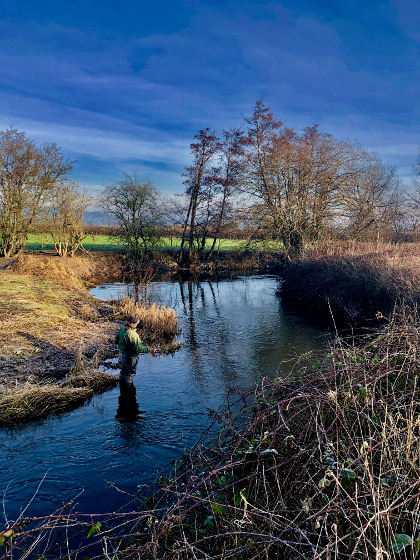
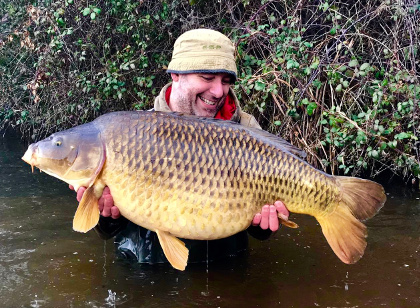
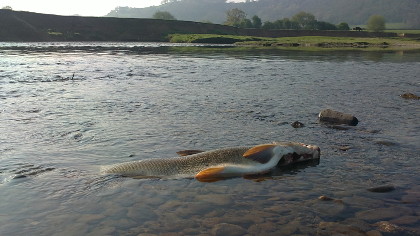
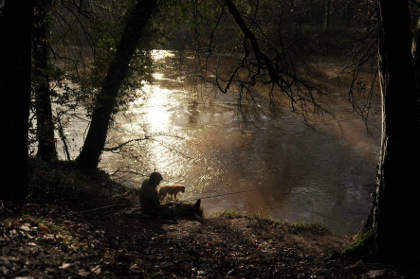
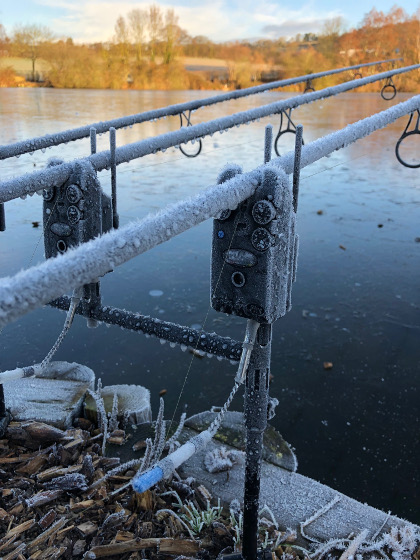
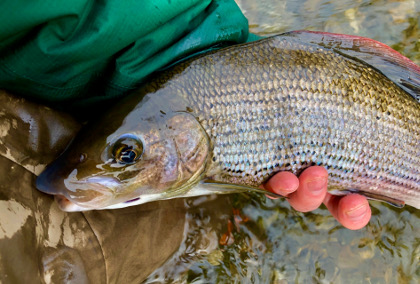
Bookings literally drop off a cliff come mid November. Understandably, anglers feel that it's too risky to book ahead given the changeable winter conditions and because the Wye is a spate river and very reactive to rainfall. Also the days are short and a day ticket is not as good value as it is at other times of year, no matter how cheap it is. Most anglers tend to stick to their club waters as a result, putting in a few hours here and there when conditions are on their side.
There can, of course, be some excellent fishing in winter and for many locals it's the best time to be out. A warm flood gets the barbel going, a low and clear river brings good pike and grayling conditions. Somewhere in between means it's ideal for, running a float through for chub and silvers. This is very hard to get right for the visiting angler though. I look for a low pressure weather front, especially with the river fining down. On the stillwaters this means prime conditions, something that was proven recently by the capture of a new lake record carp for us at Angling Dreams, a common of 38-12. This fish could be 25 years old or so, some beast I'm sure you'll agree!
We've worked hard on The Dub (the 12 acre water this fish came from), adjusting the biomass through netting and removing silvers. Together with the wonderful natural position of the water, it makes for a fantastic stillwater fishery, located on the seam of old red sandstone that works it's way through Herefordshire and up into Shropshire. That dirty brick red colour that the Wye shows during a flood is a result of this sediment. Redmire takes its name from it and we all know what that lake was capable of.
We do have worries of course - especially the presence of otters. Personally I've succumbed to the belief that they are affecting fish stocks on the Wye, especially so with pike. Okay, there's still a few fish around but populations are nothing like what they were just a few years ago. Following a flood you'll always find a carcass or 2 on the bank. Even barbel carcasses are getting found now and the odd fish with damage where the otter has "had a go". On The Dub we have lost a few fish but, thankfully, it hasn't suffered as bad as some lakes in the UK - a total wipe out of fish is not uncommon in some parts of the country. Of course, the otters are protected and there's nothing we can do to interfere with them, except for fencing a water - which for a 12 acre lake is about £30k. However, the more they keep taking rare wildfowl, swans, herons etc then something surely has to be done?
The problem is we've been fed the fluffy creature story for so long now. Due to their low numbers public perception needed to be changed to protect them. The problem is the otter is an apex predator, with huge claws and great big nasty teeth (Monty Python). They kill for fun as much as for food, and are now being seen in urban gardens, walking across football pitches, parks etc. This is not the natural environment for the otter, so clearly there is an issue somewhere.
I know it's a controversial area and my opinion is different to the Wye & Usk Foundation. They believe more that otters are a natural predator on the Wye and that populations will fluctuate and be in balance according to the prey. They also argue that because otters have a varied diet, they will only have a limited effect on any one prey species and that rather than concentrate on controlling them, efforts should instead be put into ensuring the environment is right for fish populations to thrive. Many believe that a lack of "recruitment" is why the re-introduction of otters to rivers inother areas of the UK has had such a calamitous effect on fish numbers.
It would be good for this and other issues to be debated amongst anglers without the usual entrenchment of positions so that practical solutions can be found. Only time will tell I guess but with cormorants, goosanders and now otters - fish are getting a pretty hard time from predators right now.
Onto the fishing over the last couple of months then. Well, December kicked off with a flood and in the few days after it there was some fishing to be had - mostly chub but fish on the bank all the same. Just as this settled another flood arrived, immediately followed by the first real cold snap of the winter.
Lower Canon Bridge gave up some exceptional chub, with one weighed in at 6lb 10oz. but elsewhere was quiet. Really it was grayling time and I managed a few days out after some real beauties. You shouldn't be daunted by a winter river up in mid Wales - a pint of maggots, float rod and some waders (ideally with studs) and you should get amongst some quite easily. They are such a pretty fish and put up a really good scrap on the right gear.
The Wye was up and cold over Christmas, but was in great shape come New Year. Catch reports were thin on the ground but where anglers did get out they caught some nice barbel on maggot, along with chub, pike and grayling all in there too.
It'll be the end of season before we know it and could this be the last one? Scrap the closed season? Interesting topic for conversation. Personally I think June 16th should stay as it's an iconic date for us coarse anglers. We could extend fishing into April though perhaps?
Big snow never really came this winter, but Europe got masses of the stuff. Cold nights and warm days are ahead of us for a bit, not great fishing conditions but it will bring spring - the birds are singing with the snowdrops and camellia in full bloom. Game anglers will be getting excited as their season starts on March 3rd. I know I'm looking forward to it as much as ever - a 7ft #4 and a box of flies, trout sipping in the surface film where a shaft of sunlight reaches the water - bliss.
Whatever you're out fishing for between now and the end of the season, I wish you good luck and hope you enjoy yet another change in our seasons.
